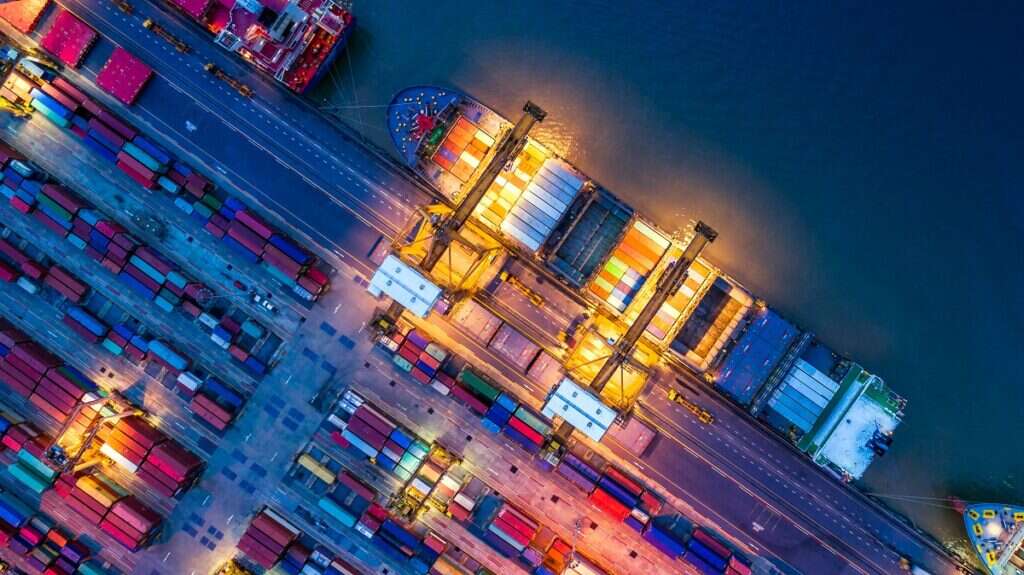
New legislation that could digitally transform the supply chain using blockchain technology comes into force this week. However, one member of the House of Lords, who has been a strong advocate for the bill, has told Tech Monitor that there’s a real risk that businesses and economies could miss out on the benefits the law can bring.

The Electronic Trade Document Act, which comes into force on Wednesday 20 September grants the same legal status to electronic documents for trading as physical ones. The government and advocates of the legislation say that this will make trade more efficient, cheaper and more environmentally friendly.
As reported by Tech Monitor, it is thought the law could boost the UK economy by over £1bn over the next ten years. It could also prove helpful to SMEs that face hurdles to trading abroad. The law was welcomed by the industry when it was announced in July and campaigners were keen for digital transformation to happen in other areas of business and trade.
However, Lord Holmes of Richmond has warned that a lack of awareness of blockchain and the legislation as well as the slow pick-up of digital trade documents in other countries could slow things down. He told Tech Monitor that the Electronic Trade Document Act was the “most important” piece of law that “no one has heard of”.
Biggest change to trade legislation underpinned by blockchain
The legal recognition of electronic trade documents updates laws that have been in place since the 1800s, which required paper documents to transfer ownership of goods. The government described this as a “costly, inefficient and outdated way of working” and that this one change could help grow the UK economy.
“It’s the most significant change to our trading legislation in 140 years and if we get it right, it will not only enable current trading to be more economical and more environmentally friendly, but it will open up huge opportunities for SMEs, not just in this country but right around the world,” Holmes says.
While the law doesn’t call for the use of blockchain directly, Holmes believes the technology underpins it: “The legislation is rightly neutral on what technology is required,” he says. “Blockchain certainly satisfies the requirement as prescribed.” He continues that flexibility and versatility mean that companies can future-proof themselves without locking themselves into a specific technology.
Holmes’ enthusiasm for blockchain is evident. Back in 2017, he penned a report Distributed Ledger Technologies for Public Good: leadership, collaboration and innovation, highlighting the need and the opportunities for the UK government to be a leader in the testing and application of blockchain.
Three years later, he wrote a proof of concept for blockchain use in international trade, The Reducing Friction in International Trade. The project provided a digital innovation sandbox for UK government departments to develop their requirements, designs and solutions, alongside working with Australia to use blockchain for wine imports. In moving from a linear chain model for data consumption and assurance to an ecosystemic one, Holmes described the proof of concept as “transformational”.
Electronic Trade Documents Act can’t be left to go”dusty on the shelves”
However, Holmes has serious concerns about the level of awareness and understanding of the legislation, sometimes he’s been pushing all the way through the legislative process.
“Passing the legislation is obviously incredibly important, but it’s only an important part of the journey,” he says. “In many ways, the next part is the absolutely critical part because it’s how we enable businesses, the whole trading ecosystem to see the benefits, which can be brought from this legislation,” he said. The concerns mainly lie with the SMEs and those who don’t currently trade abroad, who could experience far more efficiency when using electronic trade documents.
The work doesn’t just lie with the government, but with industry associations, the public and private sectors, Holmes said. He said the International Chamber of Commerce for doing “good work” in the UK and around the world in raising awareness, but it’s clear that more needs to be done.
Some people still believe blockchain and Bitcoin are the same
The public perception and understanding of blockchain could be a significant barrier, Holmes argues.
“A very small number of people have heard of blockchain, understanding blockchain and they’re able to go beyond the blockchain and Bitcoin [association],” he says. “But my fears have always been that we’ll never get to launch, never mind reap the benefits of these new technologies such as blockchain for the public good because the brand – the thing itself – might be ‘done in’ before we get to that stage, because of the link to Bitcoin.”
Recent months have seen several high-profile cryptocurrencies collapse, while the founder of one of the largest crypto exchanges, FTX, is facing fraud charges in the US. Meanwhile, the carbon footprint of cryptomining, the energy-intensive process used to create new Bitcoin, remains under scrutiny.
“If people have the knowledge and understand what [Bitcoin] is, then it’s not problematic,” Holme adds. “If people don’t see that and conflate [Bitcoin and blockchain] then it’s problematic.”






